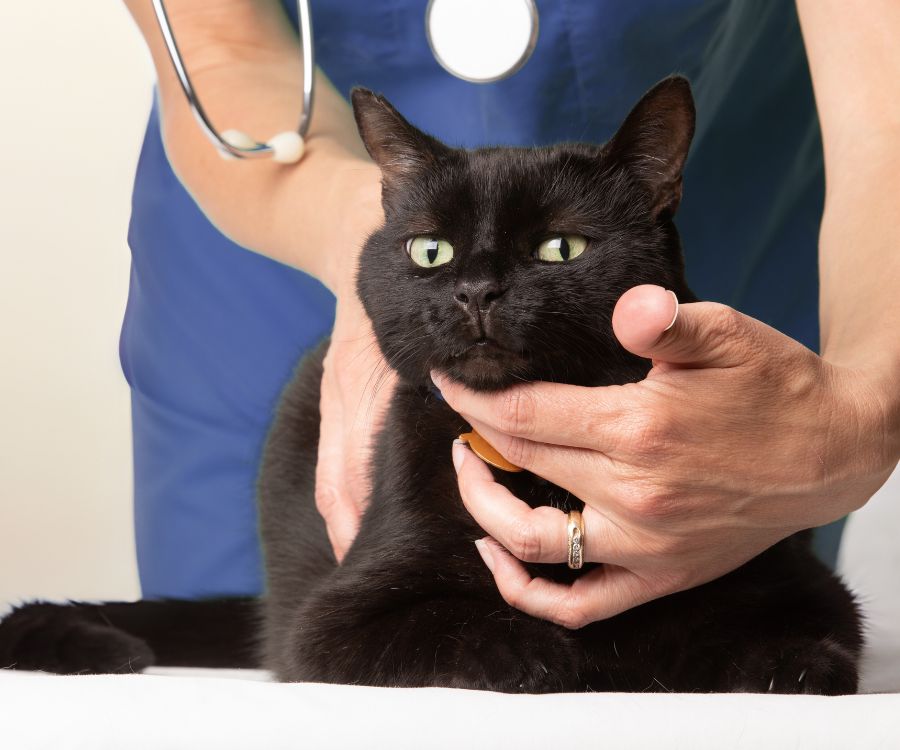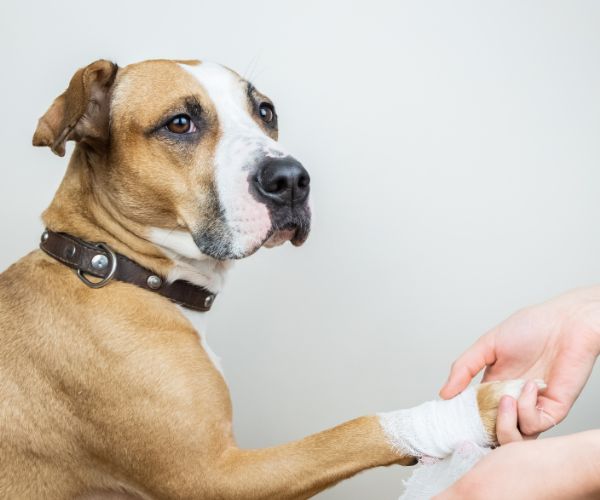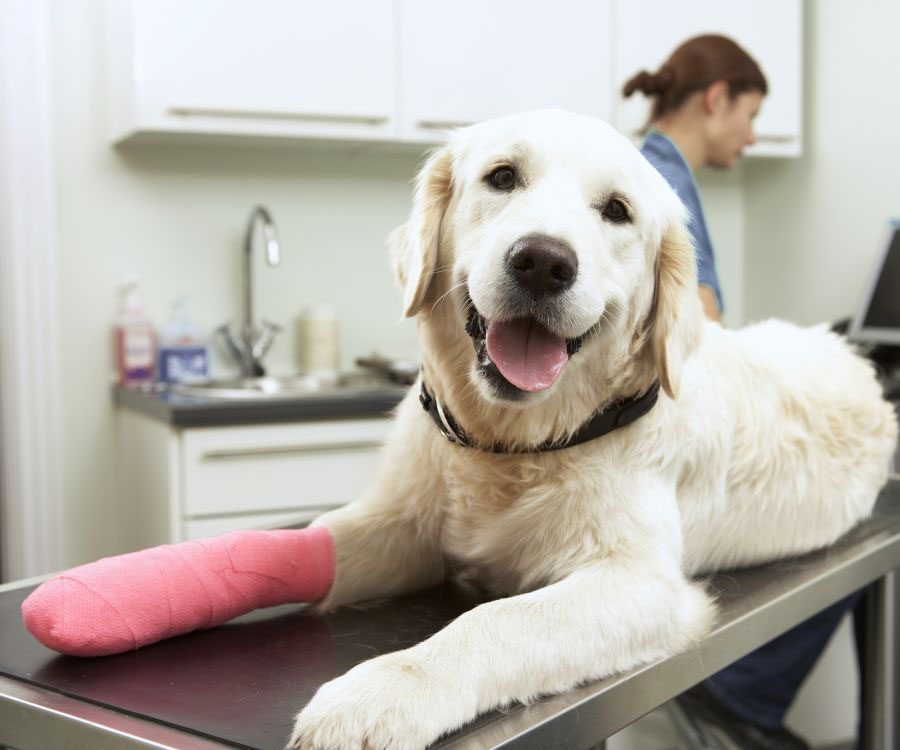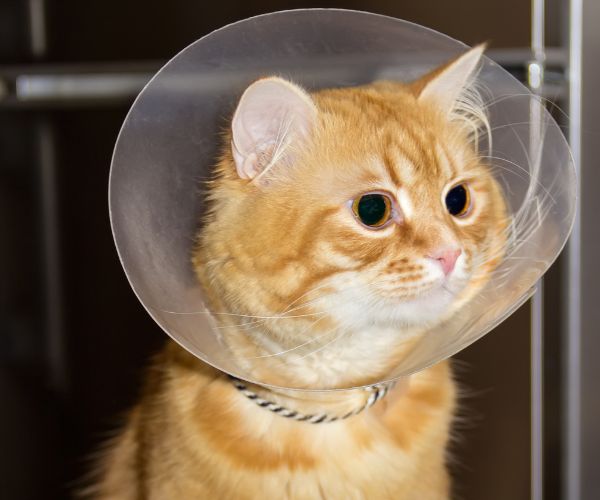Surgery
At Lansdowne Animal Hospital, your pet’s well-being is our primary concern. If your companion requires surgery, trust our experienced veterinary team to provide the compassionate care they deserve.
Surgery at Lansdowne Animal Hospital in Leesburg, VA
Surgery can be a daunting prospect for pet owners, and it’s only natural to want a complete picture of the process. At Lansdowne Animal Hospital in Leesburg, VA, we understand the concerns that accompany such decisions. Our commitment is to provide the highest quality care, ensuring your pet’s surgery is as smooth and stress-free as possible.

Pre-Surgical Preparation
Preparation is key to a successful surgery. Before any procedure, we conduct thorough preoperative screenings to assess your pet’s health and minimize the risk of complications. This includes blood work and other diagnostic tests to ensure your pet is ready for surgery. We also develop a customized plan for anesthesia and pain management tailored to your pet’s individual needs.
Advanced Surgical Techniques
Lansdowne Animal Hospital is equipped with advanced surgical tools and technology, allowing us to perform a variety of procedures with precision. Our veterinary team utilizes electrocautery, surgical lasers, and other specialized equipment to enhance the safety and effectiveness of each surgery. Whether your pet requires a routine procedure or something more intricate, our team is prepared to handle it with expertise.
Expert Care
Our veterinarians are highly skilled in performing a wide range of surgical procedures.
Advanced Technology
We use modern and advanced equipment to ensure the highest quality care for your pet.
Personalized Attention
Every surgical plan is tailored to the unique needs of your pet, from pre-op to post-op.
Compassionate Support
We understand that surgery can be stressful, and we’re here to support you and your pet every step of the way.
Soft Tissue Surgery
Soft tissue surgery encompasses a wide range of procedures that involve the skin, muscles, organs, and other non-bony tissues of the body. These surgeries are often necessary to treat injuries, remove tumors, repair congenital defects, or address chronic conditions. Whether your pet needs a minor procedure or a more complex operation, our skilled team is equipped to handle the situation with care and precision.
When to Consider Soft Tissue Surgery for Your Pet
Knowing when your pet might need soft tissue surgery can be challenging. If your pet is experiencing symptoms such as unexplained swelling, persistent pain, difficulty eating or breathing, or chronic vomiting or diarrhea, it may be time to consult with our veterinary team. We’ll conduct a thorough examination and, if necessary, recommend surgery as the most effective treatment option.


Orthopedic Surgery
Orthopedic surgery can be essential for addressing conditions affecting your pet’s bones, joints, ligaments, and muscles. Whether your pet has experienced a traumatic injury, is suffering from arthritis-related joint pain, or needs correction of a congenital deformity, orthopedic surgery offers effective solutions to enhance their mobility and comfort. Although we don’t perform orthopedic surgeries in-house, our team at Lansdowne Animal Hospital will thoroughly evaluate your pet’s needs. If surgery is necessary, we partner with trusted specialists to provide this care, working together to improve your pet’s function and reduce pain so they can return to an active, happy life.
Spaying and Neutering
Spaying refers to the surgical procedure that removes a female pet’s ovaries and uterus, while neutering involves the removal of a male pet’s testicles. These procedures are typically performed under general anesthesia and are considered routine surgeries. Spaying and neutering aim to prevent unwanted litters and promote a healthier and more balanced life for your pet.
When to Consider Spaying or Neutering
The timing of spaying and neutering can depend on various factors, including your pet’s breed, age, and overall health. Generally, it is recommended to spay or neuter your pet before they reach sexual maturity. For most dogs and cats, this occurs between six months and one year of age. However, your veterinarian will provide specific guidance tailored to your pet’s needs.

Benefits of Spaying and Neutering
Spaying and neutering your pet offers numerous advantages, both for your pet and for the community. Some of the key benefits include:
Health Benefits
Reduced Risk of Certain Cancers
Spaying female pets eliminates the risk of ovarian and uterine cancers, while neutering male pets significantly lowers the risk of testicular cancer.
Prevention of Hormonal Issues
Neutered males are less likely to develop prostate problems, and spayed females do not go into heat, reducing the risk of related complications.
Behavioral Benefits
Less Aggression
Neutered males are often less aggressive and territorial, which can lead to a more harmonious home environment.
Fewer Behavioral Problems
Spayed and neutered pets tend to be less prone to certain behavioral issues, such as roaming, marking territory, and unwanted mating behaviors.
Community Benefits
Reduction in Overpopulation
Spaying and neutering help control the pet population, reducing the number of homeless animals and decreasing the strain on local shelters.
Decreased Stray Animals
Fewer unwanted litters result in fewer stray animals on the streets, contributing to a healthier community.
Compassionate Post-Surgical Care
After surgery, your pet’s recovery is our top priority. We provide a comfortable recovery area where your pet can rest under close supervision. Our veterinary team will monitor vital signs and manage any discomfort to ensure a smooth recovery. When it’s time for your pet to go home, we’ll provide detailed post-operative care instructions, including guidance on medication, activity restrictions, and follow-up visits.
